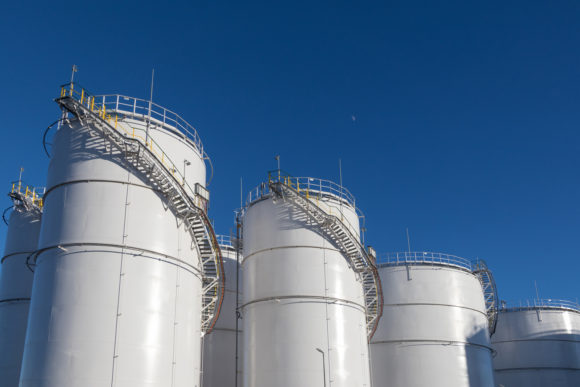A worker whose primary job duty was to unload oil products from vessels is eligible for federal Longshore and Harbor Act benefits, even though he was transferring product from one storage tank to another at the time he injured his back, a federal appellate court ruled.
The 5th Circuit Court of Appeals in New Orleans affirmed a decision by the U.S. Department of Labor’s Benefit Review Board that Dwayne Victorian was working at a “marine terminal” when he was injured and that he was performing a “maritime purpose.”
Both findings are crucial to establish eligibility for Longshore and Harbor Act benefits instead of benefits under the state workers’ compensation system.
Victorian was an assistant shift foreman at IMTT’s oil-and-gas storage facility on the Mississippi River in Greta, Louisiana. A tank farm next to the terminal held 60 storage tanks that together held 2.3 billion barrels, accessible by railroad, commercial trucks and barges.
The facility sometimes heated oil to make it easier to pump and mixed diesel with oil in process called “sparging” to create field used by ships that docked at the facility.
On June 25, 2014, Victorian was helping transfer product from one tank to another when he tried to throw a hose that gotten hooked on the bottom step of the stairway where he was standing. He immediately felt pain in his neck and shoulder, but finished his shift.
Victorian visited an industrial medical clinic the next day and was ordered to take time off work. A neurosurgeon diagnosed that he had a disc herniation and recommended surgery. The doctor opined that if Victorian did not want to pursue surgery, he was at maximum medical improvement.
Victorian said he had applied for jobs, but received no offers. He filed a claim for benefits against IMTT, which his employer contested. An administrative law judge found that he was temporarily disabled and ordered IMTT to pay benefits.
IMTT appealed, but the Benefits Review Board rejected the company’s arguments that Victorian was not engaged in maritime employment and was not working at a “marine terminal.”
Longshore and Harbor Act benefits are available only worker workers at a “maritime situs,” defined as a site that is “adjoining” navigable waters. That can include piers, wharfs, dry docks, terminals, but also any area that has a “maritime purpose.”
IMTT argued that Victorian was injured in a storage yard that sometimes doubled as a manufacturing facility when “sparging” was done to produce fuel for vessels. Even though the word “terminal” is in its title, the company argued the board had erred by finding that its facility was a terminal.
“The Board correctly noted that not ‘every square inch of an area’ must be used for maritime activity,” the appellate panel said. “Based on substantial evidence, the ALJ found that no tanks are dedicated solely to these processes and that all sixty of the facility’s tanks are customarily used to load and unload vessels.”
IMTT also argued that Victorian’s duties did not serve a maritime purpose because he did not load or unload vessels. The 5th Circuit, however, said that Victorian was tasked with overseeing the flow of oil products by opening and closing manifolds to ensure that vessels were properly unloaded.
The appellate panel also shot down arguments by International-Matex Tank Terminals that Victorian was not permanently disabled and had not conducted an adequate job search. The court rejected IMTT’s argument that Victorian could not be a maximum medical improvement because he had declined to undergo back surgery.
Was this article valuable?
Here are more articles you may enjoy.


 Judge Upholds $243M Verdict Against Tesla Over Fatal Autopilot Crash
Judge Upholds $243M Verdict Against Tesla Over Fatal Autopilot Crash  AI Got Beat by Traditional Models in Forecasting NYC’s Blizzard
AI Got Beat by Traditional Models in Forecasting NYC’s Blizzard  Building Fortification And The Role of The Insurance Industry
Building Fortification And The Role of The Insurance Industry  Tesla’s Austin Robotaxis Report 14 Crashes in First Eight Months
Tesla’s Austin Robotaxis Report 14 Crashes in First Eight Months 